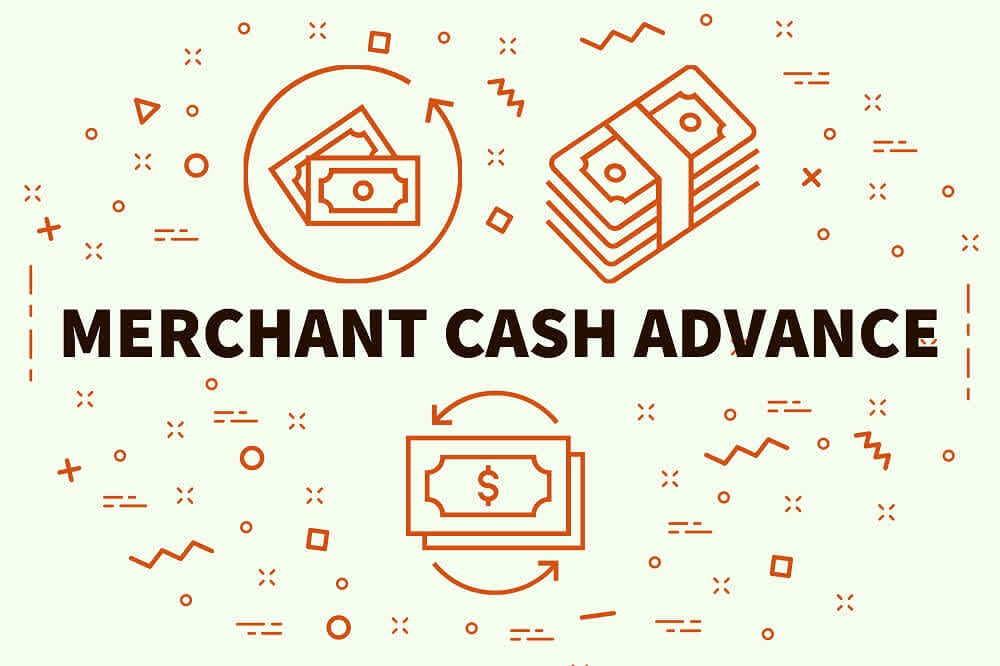
by James Hickson | March 09, 2022 | 8 min read
The best alternative lending options for start-ups
Get fundedLast updated: April 19, 2022
One of the biggest worries for start-up small business owners is cash flow. Most start-ups and micro-businesses not only lack sufficient short-term and long-term savings to cushion for emergencies, but they also have limited resources for business expansion.
The good news is that there are several start-up funding options available for small-business owners to start their business, finance their operations, and facilitate growth.
While traditional bank loans had been among the most sought-after funding options, many small businesses no longer prefer them. Each owner has their own reasons, but they range from stringent rules of lending institutions, limitations in case of a poor credit score, reduced flexibility, urgency, and lots of additional requirements to securing traditional business loans.
Whatever your reason for not wanting a traditional bank loan, many alternative lending options are available to you.
Table of contents
- What is alternative lending?
- Five alternative lending options for start-ups
- Final thoughts for alternative lending
What is alternative lending?
Simply put, alternative lending refers to receiving alternative loans for your business outside of a traditional bank.
Although alternative lending is mostly used as the second priority after being rejected for a traditional bank loan, it can also be the first priority due to its startup-friendly terms. Many alternative lending platforms and alternative lending options exist. We discuss five of the most popular alternative lending options in detail below.
Five alternative lending options for start-ups
Navigating your business finance options can be a daunting task. What types of alternative lending options might your business qualify for, and what should you look for in alternative lending companies?
To help you find the best start-up alternative lender that fits your small business objectives and plans, here are five types of alternative lending available for your business:
1. Revenue-based financing

Revenue-based financing, also known as royalty-based funding, is an alternative funding model where the start-up receives the funds in exchange for a percentage of the company's revenues over time until the predetermined amount is reached.
The investor decides whether to advance the funds to the start-up based on parameters such as revenue, operating margins, and cash flow, among others. Instead of an interest rate, this investment is typically paid back with a single-digit set fee.
Although this accessible financing option might sound similar similar to venture capital and angel investing, revenue-based financing differs in that the payment amounts fluctuate with the performance of the business. The more the revenue, the higher the payment to the investor, and vice-versa.
Some of the advantages of revenue-based financing are:
It’s much cheaper than equity, as there is no dilution
You retain full control of your business
No personal guarantees
No large payments
No credit checks, no warrants
Both the investor and entrepreneur share a common goal: revenue growth
2. Crowdfunding

Crowdfunding or crowd-investing is a funding strategy where a start-up turns to the public to finance its product, business, or project. It involves pitching your idea and solid plan on crowdfunding sites (e.g., Indiegogo, Kickstarter) and, if it is viable, you receive the necessary funding in the form of pre-orders or investments. These investments vary per investor/donator and have no ceiling or floor.
Unlike other non bank lenders, crowdfunding is very convenient as it is done on online platforms such as Kickstarter or Crowdfunder. Each of these platforms has different terms and conditions and may use different models. To prevent errors, make sure you understand the terms of service of each website.
To determine whether crowdfunding is the right funding option for your start-up, there are certain things to keep in mind. One of them is that there are three crowdfunding models: equity-based, rewards-based, and donation-based.
The equity-based model requires you to offer shares in exchange for the funds invested. The reward-based platforms give donors rewards such as discounts or products in exchange for the funds. The donation-based model provides nothing in return for the donations. You should only use the model in line with your business objectives and goals.
Another thing to consider about crowdfunding is that crowdfunding campaigns are highly likely to fail. According to Statista, only 38.92% of crowdfunding campaigns are successful. With that in mind, you should conduct proper research and seek professional guidance in order to minimise the probability of failure.
Despite the increased odds of crowdfunding campaigns failing, some of the perks you can enjoy with a crowdfunding campaign include:
It’s easy and fast to access investors
You get free market research
A successful campaign means your idea is viable. An unsuccessful one means either it is not viable, or you need to work on it more
You don’t lose part ownership unless you go for the equity-based model
3. Factoring

Factoring, also referred to as invoice factoring, invoice financing, or debt factoring, involves selling your unpaid invoices and debts to factor companies for a payment in advance. The alternative lender processes the invoices based on the client's financial status and pays you up to 90% of the invoice amount immediately instead of waiting for the collection period. The factoring company is left in charge of collecting the debt from the debtor.
Factoring is a great option to obtain capital instead of approaching traditional financial institutions because the approval is not based on your financial health or credit score but the credit score and credit health of the debtor.
With factoring, you don’t have to wait for the end of the collection period to receive the amount you’re owed. You get immediate funding for a small fee and interest rate, however this is typically higher than that of traditional bank loans. This arrangement is best suited for small or medium businesses with cash flow problems and those that mostly rely on invoice payments.
There are two types of factoring: recourse and non-recourse. In recourse factoring, if the debtor defaults on the payment, you must pay the outstanding amount. Under non-recourse factoring, instead of charging you forthe outstanding amount, the factoring company assumes most of the risk and charges you a higher fee.
4. Peer-to-peer (P2P) loans

Peer-to-peer lending, also known as social lending, is a lending option that raises funds by eliminating the middleman – lending institutions – and directly connecting investors and borrowers. It started in 2005 and is expected to be worth more than $550 billion by 2027.
Similar to crowdfunding, peer-to-peer loans are connected on online platforms, such as Prosper and Lending Club. Think of it as a combination of marketplace lending and crowdfunding.
Similar to crowdfunding, its process is relatively easy and convenient as all the payments and funding are made automatically online. You only need to open an account on your platform of choice, fill in the necessary details, and everything else is done automatically.
Keep in mind that the platforms vary in terms and conditions of service. Some of them are specialised such as iFundWomen, so you should look at all the available options to get the most out of your campaign.
It’s important to understand that peer-to-peer lending comes with a liability risk, so it may not be the best option for you if you want to be protected.
5. Merchant cash advance

In merchant cash advances, the investor forwards a lump sum of money to the business, and instead of being paid back in regular instalments on a daily or weekly basis, they receive rights to a certain percentage of all future debit and credit card revenues. They’re especially popular in the retail and hospitality sector.
To qualify for merchant cash advances, you only need to show all your credit and debit card sales for the past six months and not your annual revenue. It takes a very short time to receive the funds, sometimes just a single day.
Other benefits of merchant cash advance
You do not need any collateral.
Flexible payments.
Your credit score doesn't really matter.
They are easy to acquire.
These characteristics, and the ones below, make it very appealing for short-term cash needs for small business owners.
Despite these benefits, this should be your last option because merchant cash advances are quite expensive and could cause cash flow problems. If you’re looking for alternative finance options, you should consider cash advances as your last resort.
Final thoughts for alternative lending
Although it is hard to stay positive when traditional banks repeatedly turn you down, there are many alternative lending companies and financing options available for start-ups.
Whichever alternative finance option you select, it is vital to have a clear and solid business plan to better your chances of acquiring the funds you need for your small business.
If you own or run a digital brand and are looking to receive funding for your digital business or start-up, you need the right partner that will help you grow your online presence, augment your profit margins, increase inventory, and reach your potential.
If that sounds like something you'd want, Bloom might just be the partner you're looking for. We‘re a growth-driven company that's dedicated to offering access to founder-friendly venture capital, analytic solutions, and non-predatory pricing to help digital brands unlock their potential.
Our non-dilutive capital is an accessible alternative financing option for your start-up if you prefer revenue-based funding. Depending on your financial needs, you can access up to £10M. In addition to saving compared to other alternative lending companies and financing options, we provide you with founder-friendly terms – you only pay us back when your customers pay you.
Are you looking for start-up financing options to scale your small business upwards of five to twenty-five times? Contact us today and get started.
Written by
James Hickson is the CEO and Founder of Bloom Financial Group, the winner of numerous industry awards – most recently recognized as FinTech CEO of the year as well as Payment Service of the year by AI Global Media.
Bloom is a European Fintech company focused on small to medium business lending. With their proprietary technology, Bloom offers e-commerce and retail brands access to revenue based funding (between 25,000 EUR and 3M EUR).


